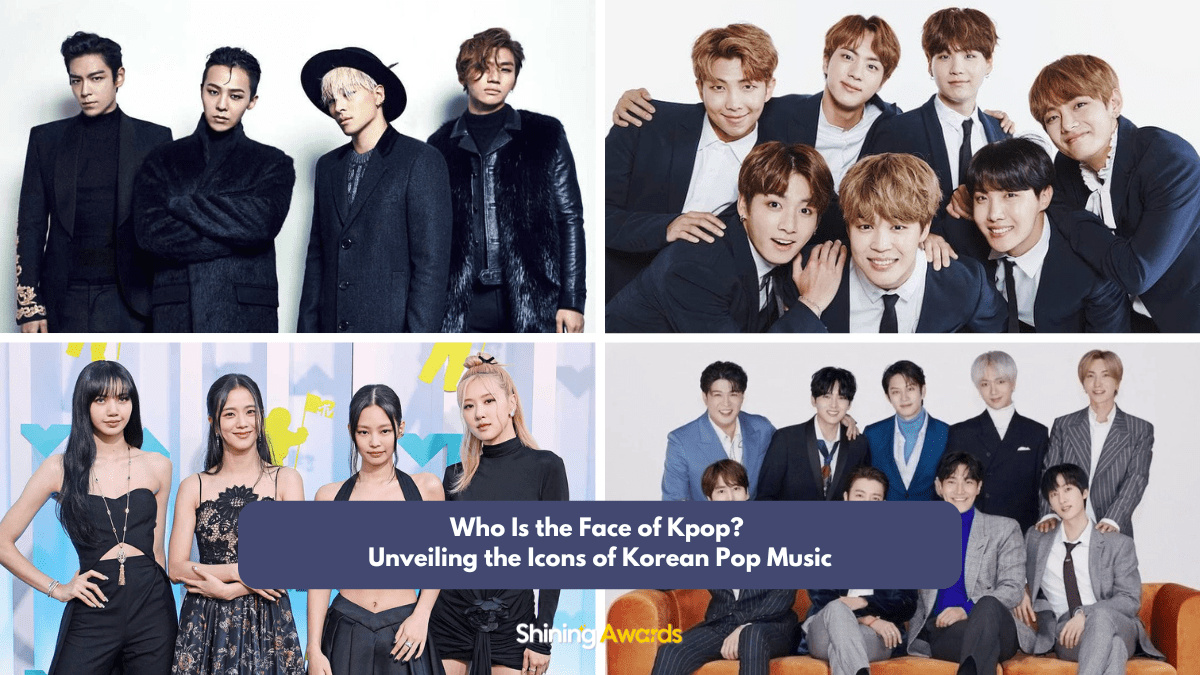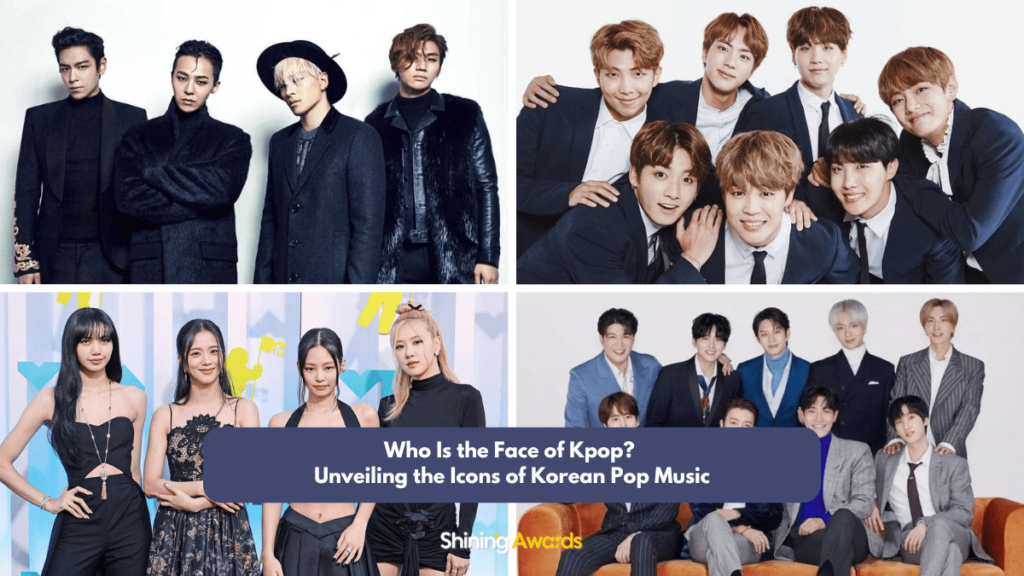Who Is the Face of Kpop? Unveiling the Icons of Korean Pop Music

Who Is the Face of Kpop? – In the vibrant world of Korean popular music, one question frequently arises: Who is the face of Kpop? This inquiry delves into the heart of a global phenomenon that has captivated millions of fans worldwide. As we explore this topic, we’ll uncover the complexities of determining a singular representative for such a diverse and dynamic industry.
Who Is the Face of Kpop?

Understanding the Concept: What Does “Face of Kpop” Mean?
Before we dive into potential candidates for the title of “face of Kpop,” it’s crucial to understand what this phrase entails. The concept of a “face” in the entertainment industry typically refers to the most recognizable or representative figure of a particular genre or movement.
Criteria for Determining the Face of Kpop
To answer the question “who is the face of Kpop?” we need to consider several factors:
- Global recognition
- Impact on the industry
- Cultural influence
- Longevity in the field
- Achievements and awards
- Fan base size and engagement
The Evolution of Kpop: A Brief History
To truly understand who is the face of Kpop, we must first look at the genre’s evolution:
| Era | Key Developments | Notable Acts |
|---|---|---|
| 1990s | Foundation of modern Kpop | Seo Taiji and Boys, H.O.T. |
| Early 2000s | Rise of idol groups | TVXQ, Super Junior, Girls’ Generation |
| Late 2000s | Global expansion begins | Wonder Girls, BIGBANG |
| 2010s | Kpop wave (Hallyu) peaks | BTS, BLACKPINK, EXO |
| 2020s | Mainstream global acceptance | Continued dominance of established acts, rise of 4th generation groups |
Contenders for the Title: Who is the Face of Kpop?
As we ponder who is the face of Kpop, several artists and groups emerge as strong contenders:
BTS: The Global Phenomenon
Many would argue that BTS has become synonymous with Kpop in the global consciousness. Their unprecedented success has led many to consider them the de facto answer to “who is the face of Kpop?“
Key achievements:
- First Kpop group to top Billboard Hot 100
- Addressed the United Nations General Assembly
- Massive global fanbase (ARMY)
- Multiple Grammy nominations
BLACKPINK: The International Girl Group Sensation
BLACKPINK has made significant strides in representing Kpop on the global stage, particularly in fashion and music.
Notable accomplishments:
- Highest-charting female Kpop act on Billboard Hot 100
- First Kpop group to perform at Coachella
- Collaborations with international artists like Lady Gaga and Selena Gomez
PSY: The Viral Sensation
While PSY’s peak was earlier in the 2010s, his impact on bringing Kpop to global attention cannot be overstated.
Milestones:
- “Gangnam Style” became the first YouTube video to reach 1 billion views
- Introduced many to Kpop for the first time
- Paved the way for future Kpop acts in the West
Individual Idols: Faces Within the Industry
When considering who is the face of Kpop, we must also look at individual idols who have made significant impacts:
- G-Dragon (BIGBANG)
- IU
- Taeyeon (Girls’ Generation)
- RM (BTS)
- Lisa (BLACKPINK)
These artists have not only found success within their groups but have also established strong individual brands and careers.
The Changing Face of Kpop: A Dynamic Industry
As we continue to explore who is the face of Kpop, it’s important to recognize that the answer may change over time. The Kpop industry is known for its rapid evolution and the continuous debut of new acts.
Factors Influencing the Face of Kpop
Several elements contribute to the ongoing shifts in who might be considered the face of the genre:
- Generational changes in idol groups
- Evolving global music trends
- Technological advancements in music distribution
- Changes in fan engagement and social media presence
The Rise of 4th Generation Kpop Groups
As we ponder who is the face of Kpop, we must also consider the impact of newer groups that are gaining rapid popularity:
- Stray Kids
- ITZY
- TXT
- ENHYPEN
- aespa
These groups represent the future of Kpop and may soon be contenders for the title of “face of Kpop.”
Beyond Individuals: Kpop as a Cultural Phenomenon
While we’ve explored potential answers to “who is the face of Kpop?” it’s crucial to recognize that Kpop’s influence extends beyond any single artist or group.
Kpop’s Global Impact
Kpop has become a cultural force with wide-reaching effects:
- Boosting South Korea’s economy
- Influencing fashion and beauty trends worldwide
- Promoting Korean language learning
- Fostering cultural exchange and understanding
The Role of Fans in Shaping Kpop’s Image
Fan communities play a significant role in determining who is the face of Kpop. Their dedication and support can elevate artists to new heights of popularity and influence.
Conclusion: The Many Faces of Kpop
As we’ve explored the question “who is the face of Kpop?” it becomes clear that there isn’t a single, definitive answer. Kpop’s strength lies in its diversity, with multiple artists and groups contributing to its global appeal.
Rather than seeking a singular face, perhaps it’s more accurate to celebrate the many faces that collectively represent Kpop on the world stage. From the record-breaking achievements of BTS to the viral sensations like PSY, and the rising stars of the 4th generation, each contributes to the rich tapestry that is Kpop.
As the genre continues to evolve and captivate audiences worldwide, the question of who is the face of Kpop will likely remain a topic of discussion and debate among fans and industry observers alike. What’s certain is that Kpop’s influence on global popular culture is here to stay, with its many talented artists continuing to push boundaries and redefine the music industry.
